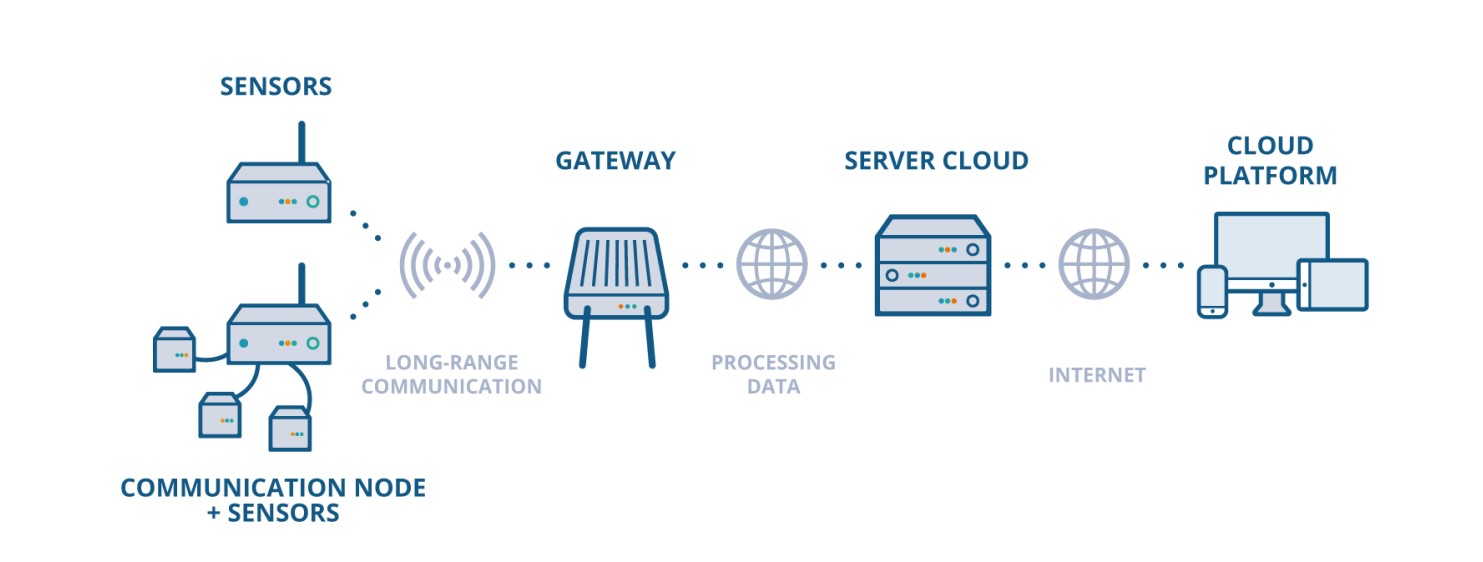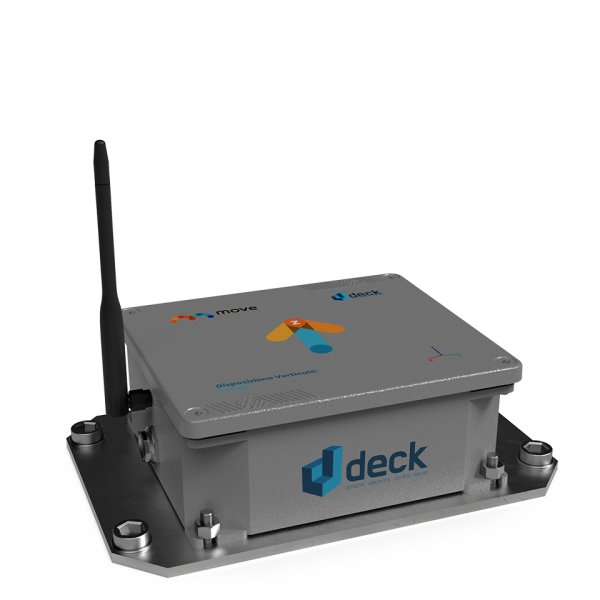Deck - Dynamic Displacement Sensor
The Deck device is a wireless sensor that allows measuring the dynamic amplitude of displacement with an accuracy of 0.01 mm and the vibration frequency (using an FFT algorithm) of any structure to which it is applied.
Deck
The Deck sensor is a wireless device that allows measuring the dynamic amplitude of displacement with a precision of 0.01 mm and the vibration frequency (using an FFT algorithm) of any structure to which it is applied. In each sensor, a threshold can be set remotely through the Move Cloud platform. Each sensor continuously samples the oscillation amplitude and, if this threshold is exceeded, the sensor records and transmits the 10 seconds before and the 20 seconds after the event. It is completely wireless and the battery can last for years. It also features a temperature sensor.
The deck sensor transmits accurate readings from the location using the LoRaWAN wireless communication protocol through a gateway. You can view and interact with your data online through the Move Cloud platform. There are multiple data processing and correlation algorithms developed by Move. Ideal for the dynamic monitoring of large structures such as bridges and overpasses.
Each sensor continuously samples the oscillation amplitude and, if this threshold is exceeded, the sensor records and transmits the 10 seconds before and the 20 seconds after the event. It is completely wireless and the battery can last for eight years.
Key parameters:
- Wireless dynamic displacement sensor
- Uniaxial measurements parallel to the gravitational axis (Z) or the perpendicular axis (X or Y)
- Integrated temperature sensor
- Extremely simple installation
- Ultra-low noise performance
- Resolution of 0.012 mm, 0.024 mm; displacement accuracy ±0.01 mm and range ± 1.5 mm, ± 3 mm
- Built-in long-life battery
- IP67 waterproof rating
Main applications of the dynamic displacement sensor
|
|
|
Easy installation of the Move wireless monitoring system
The installation of an entire wireless sensor system on-site is quick and easy: just mount each device with at least two screws on the structure you want to monitor and power the LoRaWAN gateway. You can configure the entire system remotely, before, during, or after installation, using your laptop or tablet. After mounting and configuration, the Move wireless monitoring system will start measuring and you can start monitoring remotely.

Operation of the Move wireless monitoring system
The wireless sensor system automatically communicates measurement data via LoRaWAN with the on-site gateway, which in turn sends the received data via 4G or LTE to the online servers. The Move Cloud Platform is the cloud-based web tool that allows you to access, view, and export your measurement data and configure the settings of the entire sensor system. You can access the Move Cloud Platform 24/7 from anywhere or any device in the world. One of the main advantages of the Move Cloud Platform is that it offers remote access to measurement data and allows remote configuration of all installed sensors. This saves time and effort. Additionally, you can analyze measurement data using processing algorithms included in the service. Perform calculations, correlations, and complex analyses automatically and effortlessly. With just a click, you can export measurement data in CSV format. You can also easily configure alerts to multiple recipients who will receive threshold crossing notifications by email.
- Easily install the entire system on the structure without the need for wiring.
- View measurement data in real time wherever you are, on any device, 24/7.
- Quickly and remotely configure all wireless sensors.
- Process the collected data using the implemented algorithms.
- Constantly monitor the operating status and signal quality of the system remotely.
- Customize alarm notifications and receive crossing notifications by email.
- Optionally, you can integrate the data into your platform via MQTT bridge, FTP, or through API calls.
You might also like
















